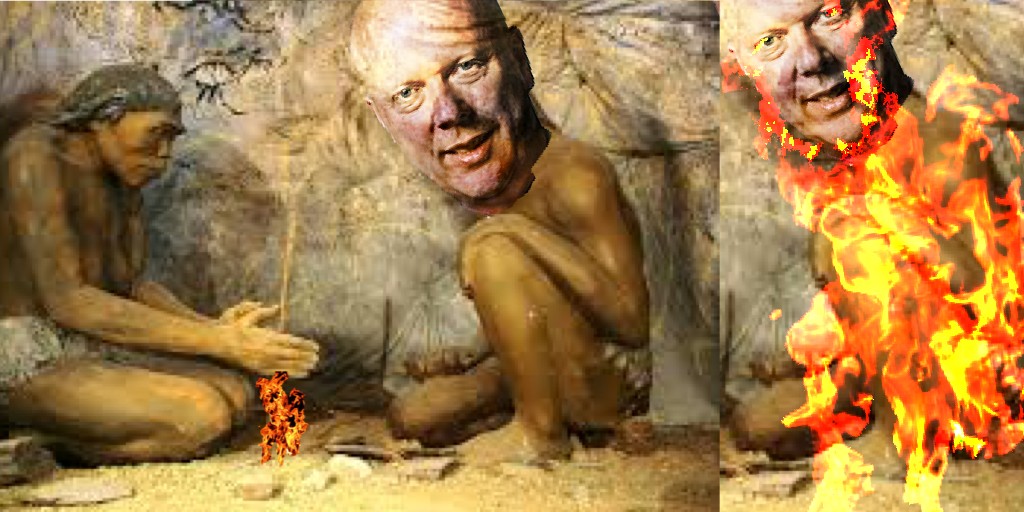Archaeologists from the Museum of Ancient Technology in Epsom have announced both the discovery, and the naming, of the first human believed to have set themselves on fire.
”We’ve been excavating a cave in Ewell for the last nine digging seasons and we are now certain that among many fascinating discoveries from pre-history is the charred and fossilised bones of the first man to accidentally set himself on fire,” Professor Billions-gone told LCD Views, “we have named the skeleton Grayling Man in honour of the current Secretary of State for Transport. In fact I am actually named after that genius of shifting public money into private coffers too.”
Identification of the circumstances surrounding the demise of ancient humans is often difficult to ascertain, as ancient people were crap at keeping detailed records, but not so in the cave in Ewell.
”The walls were initially heavily coated in the soot of ancient public expenditure scandals, but one day one of my colleagues accidentally head butted a wall after reading a news article about Chris Grayling’s ministerial career,” Professor Billions-gone explained, “the blow to the wall wasn’t sufficient to render her unconscious as hoped, but it was hard enough to crack the crust and reveal cave paintings preserved underneath.”
And it was the paintings that told the story of the blackened bones embedded in the floor of the cave.
”It’s essentially an ancient cartoon of Grayling Man,” The professor said, “he is pictured across a storyboard drawn and painted in ochre and desperation. We see him observing the discovery of fire closely and then almost instanteously catching fire, after ignoring the advice of those nearby. He is able to escape hands of people trying to douse him in mammoth urine and basically runs about setting everything he touches ablaze,
”It appears to be both an easily foreseen and completely avoidable calamity for the tribe. Much like the career of current Frank Spencer of British politics.”


